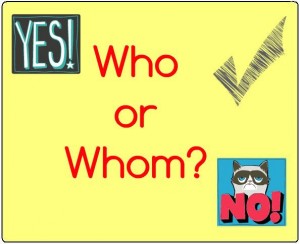Who or Whom Grammar Rules

Just who or whom decides what word should be used in certain situations? Is it the teachers, professors or the scholars who determine the outcome pertaining to the who or whom grammar rules? The norm would be for the majority of experts which lean one way to ultimately decide which is the correct form. The following article discusses this who or whom grammar rule and why it’s so important.
The Debate Goes On
When it comes to spelling properly or correctly, there are certain words which are very easy to use and cause no real problem for users. However, there are others which can downright cause nightmares for someone when it comes to trying to make sure they are using the correct word.
The English language is one which constantly causes debates in regards to proper spelling and grammar. This argument especially applies to the who or whom grammar rules as well where there’s an ongoing debate about which to use and when. Of course, as with all grammar rules, there will be some teachers or professors who may lean one way, while there may be others who will opined in the other direction. Still, there are some rules where most experts agree on the spelling so these are never a problem for people to follow.
Ever wondered Who decides what’s right or wrong in English grammar?
The ‘Who’ or ‘Whom’ Question?
One of the most known or common rules when it comes to deciding which to use in a sentence between who or whom is the following:
Rule #1: When in doubt about which to use, substitute “He/him” or “She/her” for either word. If you determine that it is either “He” or “She” then the proper word to use would be “who”. If, however, it’s “him” or “Her” which fits in the sentence, then the answer would be “Whom.”
In accordance with the rules of formal grammar, the word “Who” should be used in the ‘subject’ situation spot of a sentence. However, the word “Whom” should be used in the ‘object’ spot position of a sentence as well as after a proposition. Since who is used as the subject of a verb or an addition of a combining verb, it is a nominative pronoun. On the other hand, since whom is used as the object of the verb, or the object of a preposition, it is an objective pronoun.
The truth is that for the most part, when it comes to speaking or in a speech, people rarely ever really use the word ‘whom’. The reason for that is because the word simply sounds too excessively formal. Furthermore, most people use ‘who’ when speaking in all context and refrain from using whom at all.
Examples:
Who do you think won the debate last night?
Who do you wish to speak to first during the meeting
Another way to look at these two words is by remembering that they are relative pronouns. This means they are used to link one clause to another.
Examples:
The woman whom you saw yesterday is here today.
The kids, who had been doing so well during the day, began to misbehave during the evening.
The women to whom the money was supposed to go to, never saw a penny of it, according to the papers.
Here’s another grammar rule you may want to know more about: Thou and Thee
In summary, the deciding factor on which to use in a sentence between who or whom may be determined mostly by the aforementioned rules. Nevertheless, the people who are mostly bound by these rules are those whom express themselves extremely formally.
